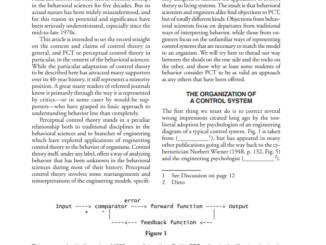
The Dispute Over Control Theory
Comparing behaviorism, cognitive psych and PCT.
Misapprehensions and misstatements. […]

Comparing behaviorism, cognitive psych and PCT.
Misapprehensions and misstatements. […]
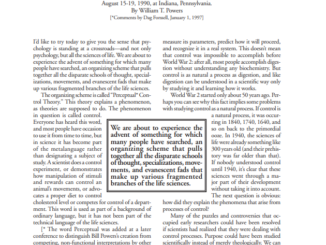
William T. Powers Many people have some sense of what control is about, but very few understand clearly how control works and even fewer (including control engineers) understand clearly what a control systems controls: Not […]
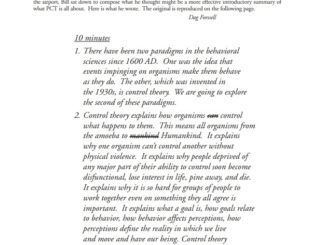
An effective introductory summary of what PCT is all about, by Bill Powers […]
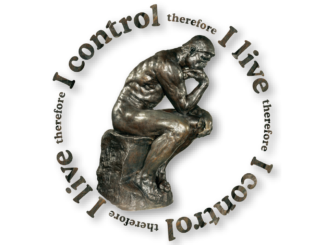
Elements of the control loop have been labeled slightly different by different people at different times and for different purposes, whether for a very plain explanation or for more mathematical treatment of the physical functions. […]

Dag Forssell This script and the accompanying video are designed to introduce and demonstrate the basic concept of PCT. The article Perceptual Control: Management Insight for Problem Solving, in the book: Management and Leadership: Insight […]
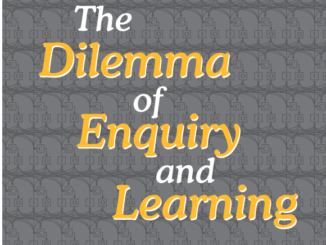
Hugh G. Petrie “I think that this book will be ‘compulsory reading’ in graduate schools of education around the country, and that it will arouse a vigorous and healthy controversy by shaking people out of […]
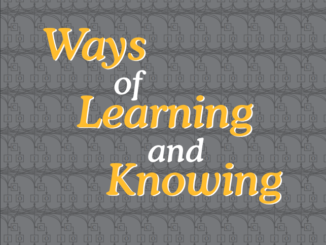
Hugh G. Petrie “For most of his career, Hugh was way ahead of his time. His papers in this volume still are. The role of the evolutionary process of blind variation and selective retention in […]

Phil Runkel The spring semester is nearly half completed. I am using your book in two classes. My experience this year is identical to that last year., when I wrote to you, “As time passes […]

Timothy A. Carey “This new book is a great addition to the educational literature. It introduces educators to the most important and revolutionary new development in psychology in decades, PCT. And it does this in […]
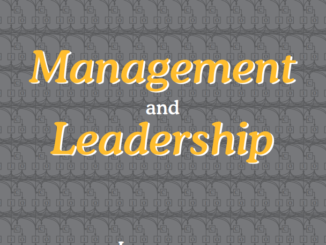
Dag Forssell “When i first learned of PCT about seven years ago, I read everything I could get my hands on and your articles, for me, most clearly explained PCT. Somehow, your unique use of […]
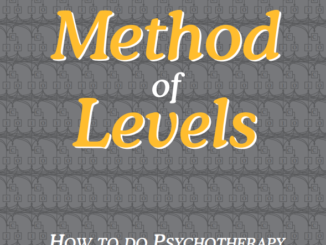
Timothy A. Carey “I’ve just finished the Method of Levels, and I’m astonished, delighted, and inspired. I was a psychotherapist for many years, using a variety of approaches (predominantly Gestalt Therapy, several versions of family […]
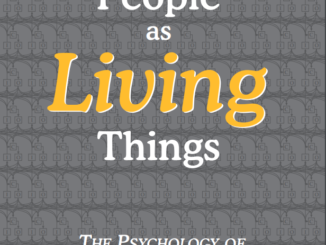
Philip J. Runkel “I started reading your book to see whatever you have to say about systems. Then I really got fascinated by your book and read it from start to finish. Very impressive! And […]
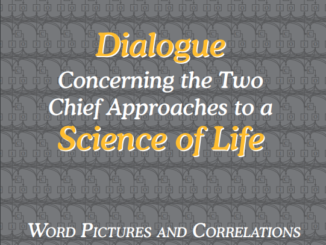
William T. Powers & Philip J. Runken Throughout this volume, Phil and Bill exchange candid assessments of the players, methods and dominant approaches in psychology and the social sciences, and the difficulties that go with […]
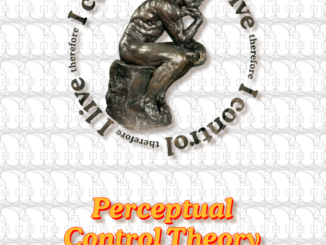
Dag Forssell, Editor The May 2016 edition is now a 424-page book that includes 34 papers with selections from 26 books. Subjects include psychotherapy, management, emotions, baby brain development, computer simulations and tutorials, scientific revolutions, […]

NOTE: Bill Powers’s work Living Control Systems III : The Fact of Control (2008) with updated Windows programs is recommended. These programs and the book explaining them provide an excellent introduction to PCT. The programs themselves are superior […]
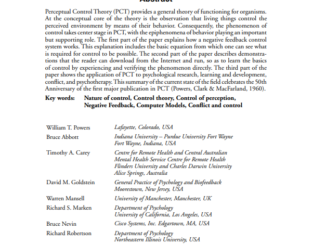
An introduction to Perceptual Control Theory, contrasting it with basic ideas in contemporary science of psychology. […]
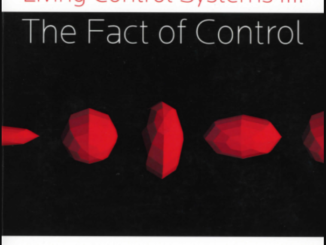
Book + demonstration programs by William T. Powers (2008) Living Control Systems III continues Powers’ revolutionary approach to understanding living organisms as purposeful agents whose actions serve to control their environments. A unique feature of […]
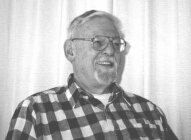
est·schriftPronunciation: ‘fes(t)-“shrift Etymology: German, from Fest celebration + Schrift writingDate: 1898: a volume of writings by different authors presented as a tribute or memorial, especially to a scholar Introduction The William T. Powers Festschrift is […]

William T. Powers Preface This book represents, I hope, a step on the path back to a concept of man as autonomous, and away from the concept of man as automaton. Yet in allowing my […]
Copyright © 2022 iapct.org